Behind the Scenes: The Real Impact of Psoriatic Arthritis
What does daily life with psoriatic arthritis (PsA) really look like? Living with PsA is not just about coping with symptoms like chronic fatigue, joint pain, and skin lesions. PsA can disrupt many aspects of life, including relationships with loved ones, work and home responsibilities, and even the activities and hobbies you enjoy.
In our 2019 Psoriatic Arthritis In America Survey, 77 percent of people with PsA agreed with the statement “I can't do everything I would like to do because of psoriatic arthritis.”
PsA can change how you live your life every single day. With the survey, we learned more about the impact of PsA on the lives of real patients and their families.
Understanding daily symptoms of psoriatic arthritis
A day in the life with PsA means waking up with morning stiffness and trying to cope with a reduced range of motion in your joints. It means finding ways to push through the fatigue and pain while not pushing your body too far.
For those who have psoriasis in addition to PsA, skin symptoms such as itching, burning, and flaking add a layer of daily complications to deal with.
The impact on work and career
The demands of a career can be a lot to handle with a chronic condition like PsA. It is not just pain that has an impact on the responsibilities of a job. Even on low pain days, it can be a struggle to function at full capacity at work due to brain fog and chronic fatigue.
The burden of treatment costs
The financial aspects of living with and managing PsA can cause a lot of stress for those with the condition and their caregivers. Balancing healthcare costs with other financial responsibilities can feel overwhelming.
Interrupted sleep
We all know that sleep is an important part of staying healthy. PsA symptoms can steal precious hours of much-needed sleep. Certain PsA symptoms can be more problematic for achieving a good night’s sleep than others.
The importance of support with PsA
On both the good days and the bad days with PsA, people need support. Although many with PsA have a team of people who give them encouragement, comfort, and support, there may be days when PsA flares require a bit more than their team can handle. More than half of people living with PsA would like to receive additional support.
Most are looking for support in coping emotionally with the condition. Many are also looking for help around the house.
The 2019 Psoriatic Arthritis In America Survey was conducted online from May through September of 2019. The survey was completed by 1,148 people.
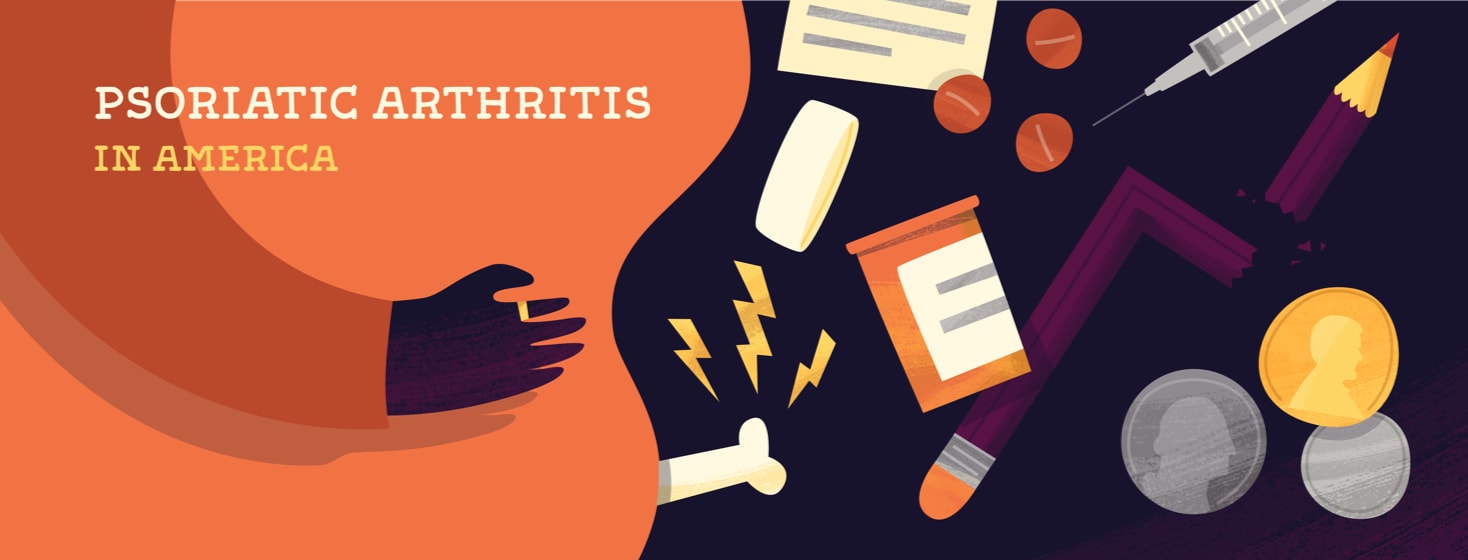
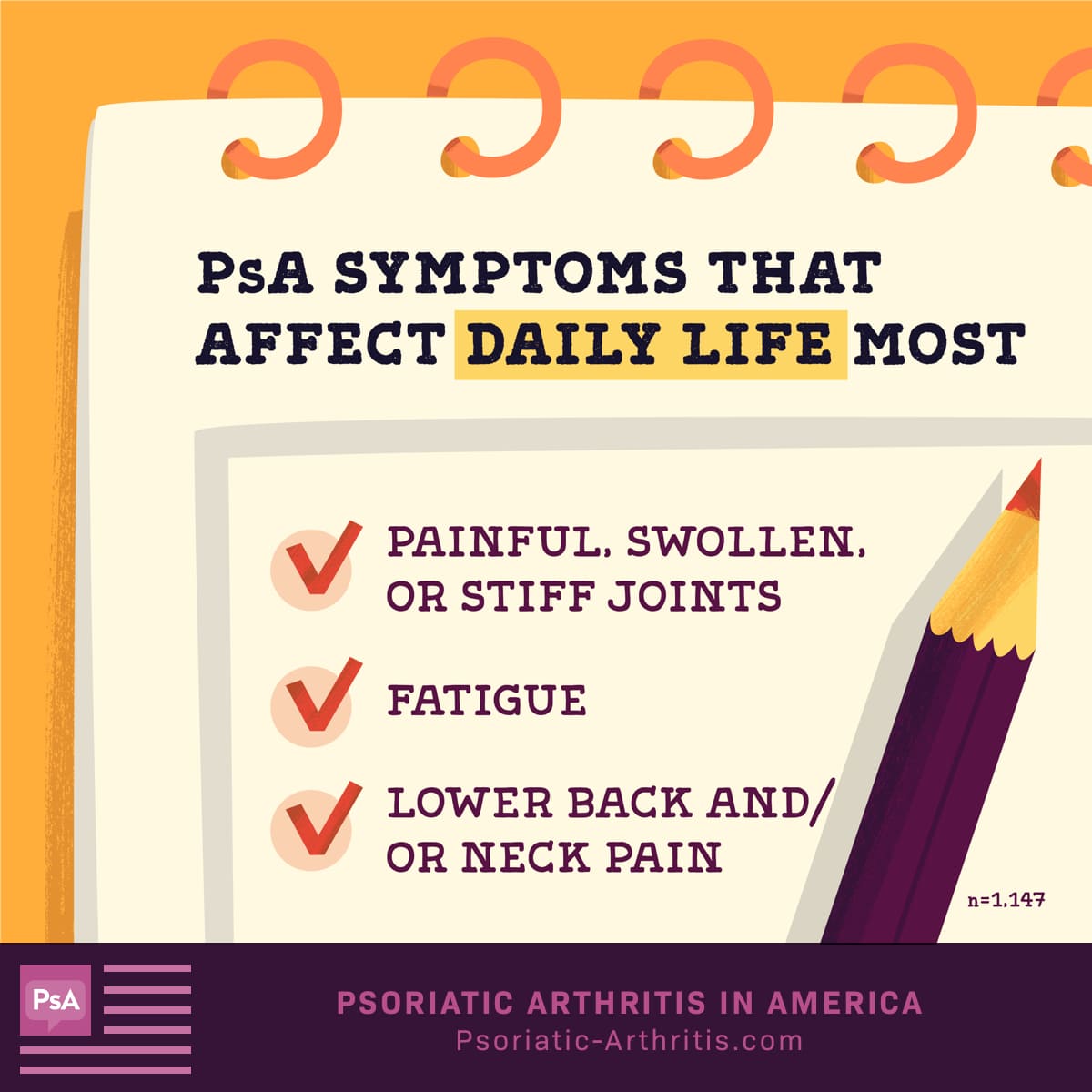
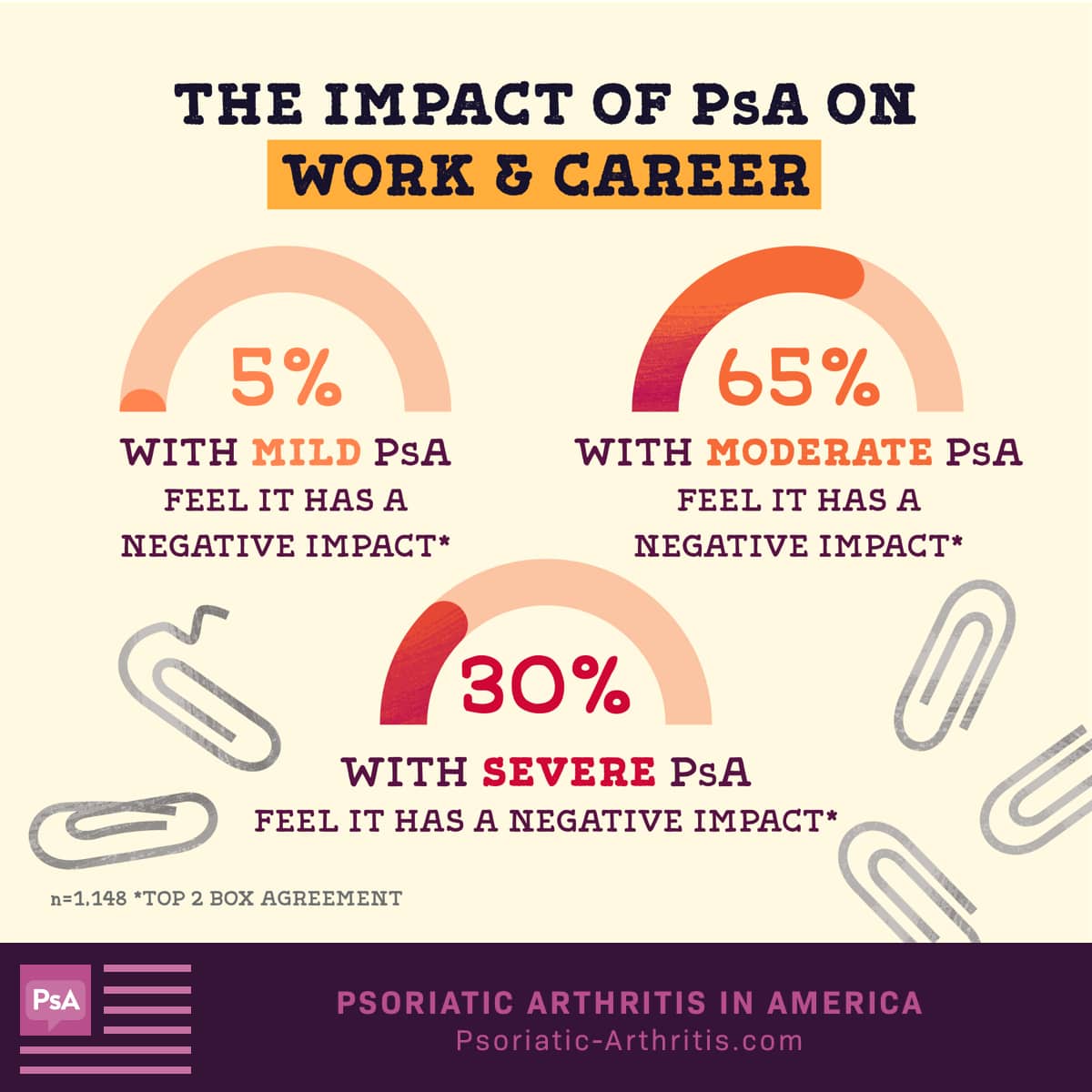
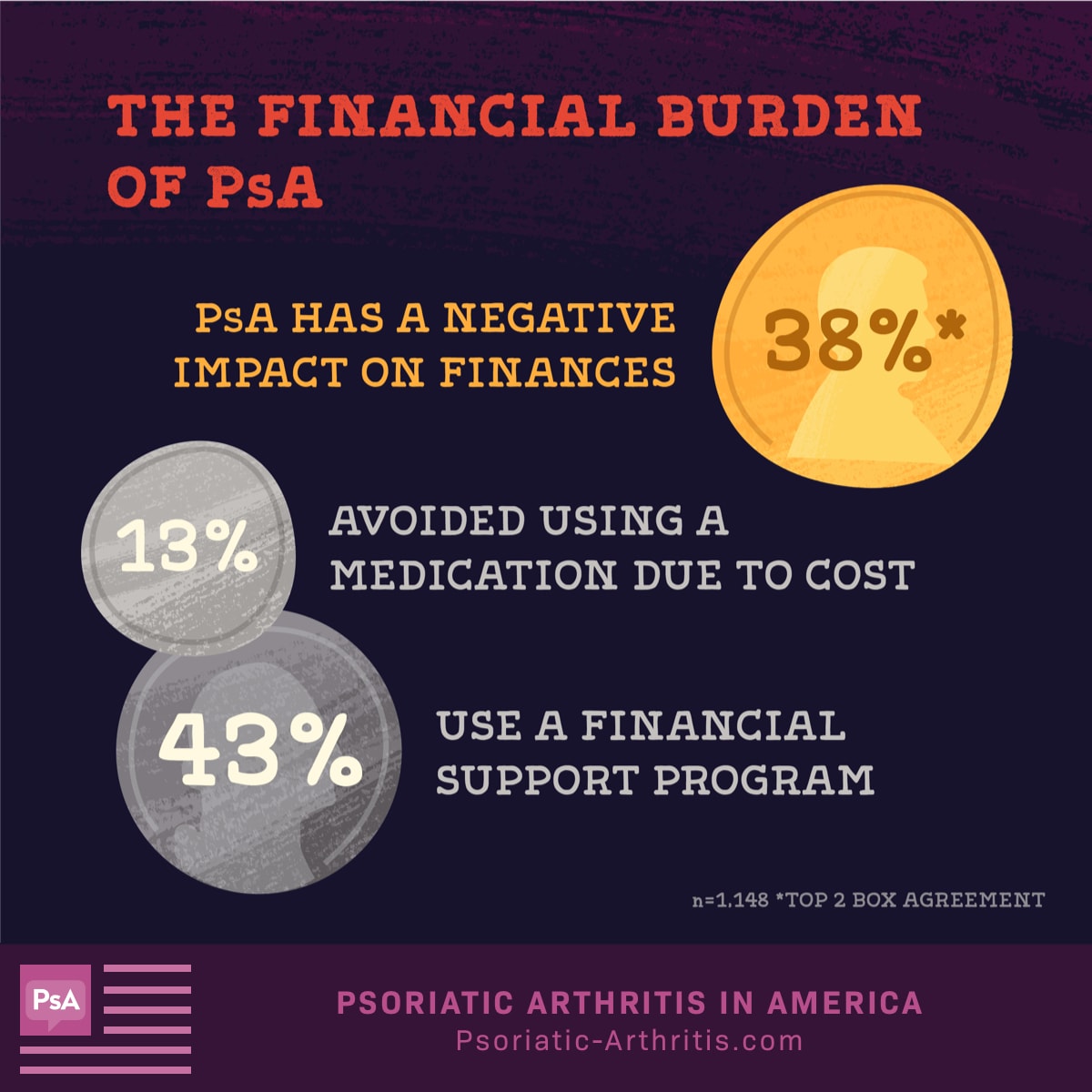
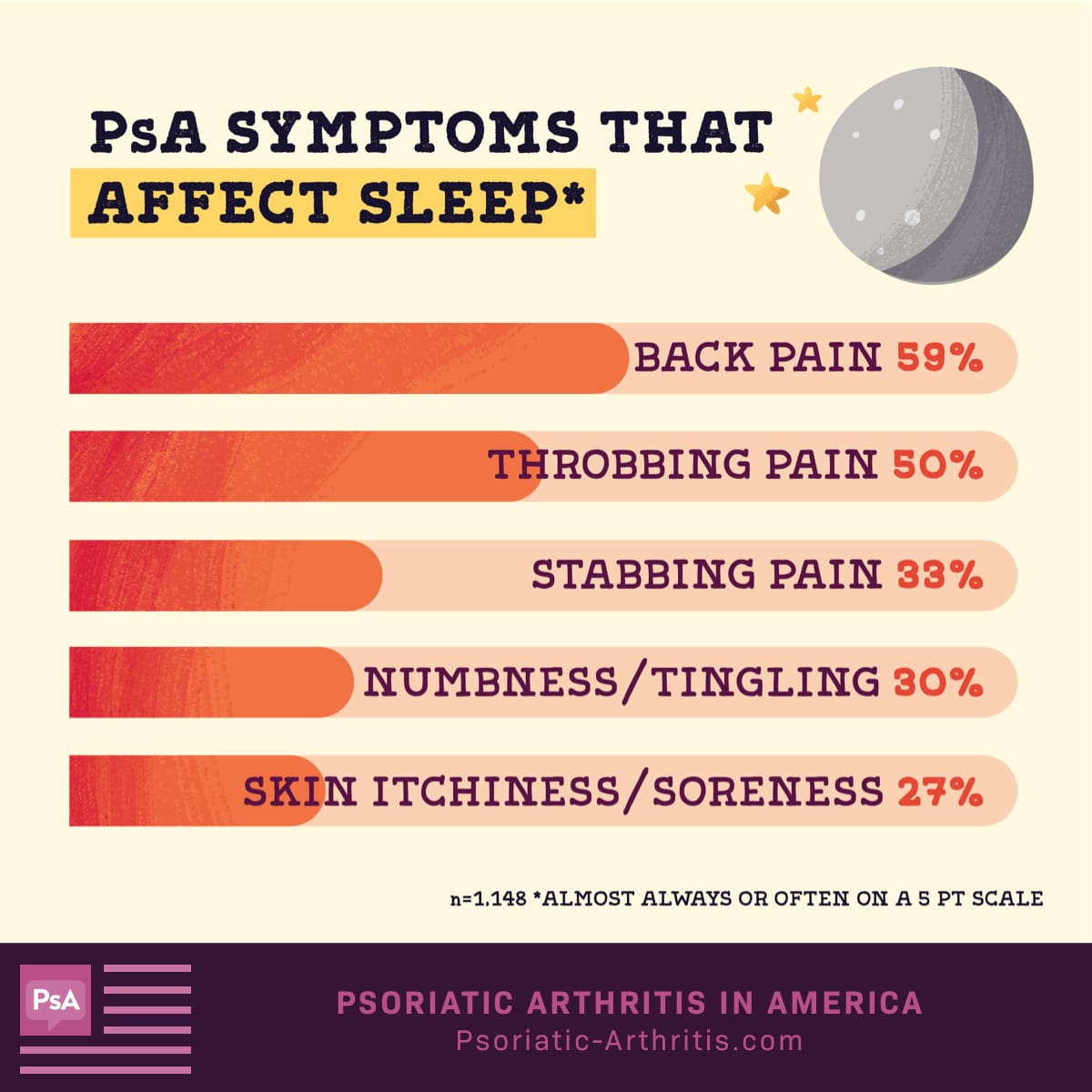
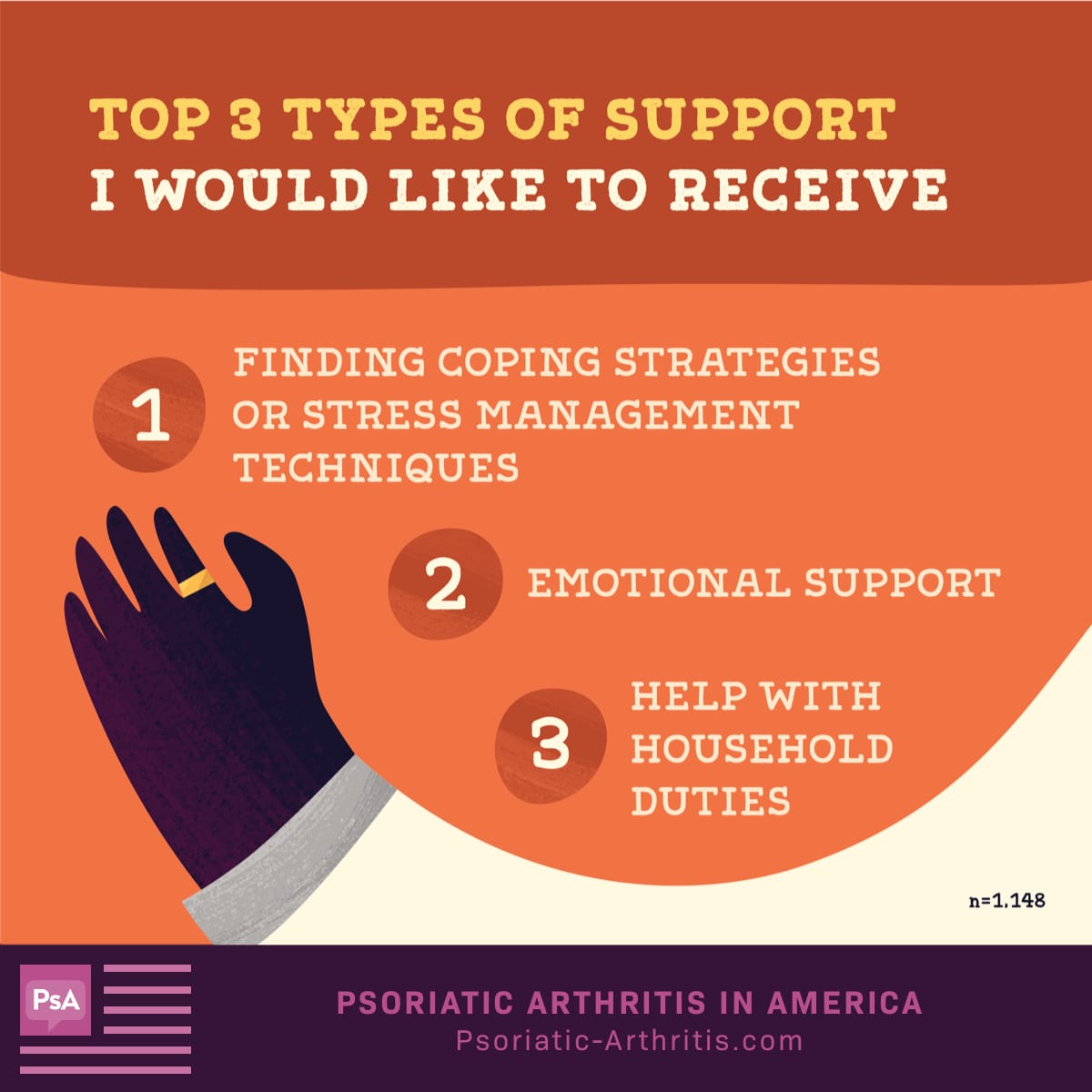
Join the conversation